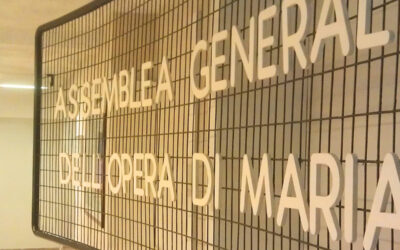 We know that the Dominican Republic is the “Switzerland of the Caribbean”. The central districts of the capital, Santo Domingo, resemble Miami or Houston, but they remain unable to conceal the serious social inequalities that affect Dominican society as a whole. It is nothing like the plight of their Haitian neighbors who are struggling to survive, even though a million Haitians live in the Dominican Republic, doing the toughest jobs as construction workers, longshoremen, and banana plantation workers. And you cannot talk about “pockets” of poverty, because here there are entire neighborhoods where it is difficult to lead a decent life.
We know that the Dominican Republic is the “Switzerland of the Caribbean”. The central districts of the capital, Santo Domingo, resemble Miami or Houston, but they remain unable to conceal the serious social inequalities that affect Dominican society as a whole. It is nothing like the plight of their Haitian neighbors who are struggling to survive, even though a million Haitians live in the Dominican Republic, doing the toughest jobs as construction workers, longshoremen, and banana plantation workers. And you cannot talk about “pockets” of poverty, because here there are entire neighborhoods where it is difficult to lead a decent life.
One such place is Herrera in the El Café area, where Maria Voce went to visit one of the social projects being developed by the Focolare Movement, a school named “Café con leche” – “Coffee with milk – which calls to mind the mulattoes – neither coffee nor milk – the majority of the population in the Dominican Republic. The school has over 500 students who attend morning and afternoon classes in a building that has gradually been growing larger and larger since 1990 when the project was begun.
 Everything began with Marisol Jiménez. Seeing the state of extreme poverty in the district and the children in their state of semi-abandonment, she began by organizing a choir in the local parish. Then she organized a summer camp for children, which was repeated for two years and involved 500 children. It soon became clear to her that something had to be done to raise the educational level of the children, many of whom were unable to read or write. Gradually, she was able to engage her friends in the project until, in 1995, the school was opened with three teachers and around ten students.
Everything began with Marisol Jiménez. Seeing the state of extreme poverty in the district and the children in their state of semi-abandonment, she began by organizing a choir in the local parish. Then she organized a summer camp for children, which was repeated for two years and involved 500 children. It soon became clear to her that something had to be done to raise the educational level of the children, many of whom were unable to read or write. Gradually, she was able to engage her friends in the project until, in 1995, the school was opened with three teachers and around ten students.
 In an atmosphere of joyful anticipation, with children sitting everywhere, and neighboring families coming to join in the festivities, Maria Voce was able to appreciate the progress that the project has shown, how it has gone ahead with the help of the “adoption at a distance” program of the New Families Movement and the generosity of the Igino Giordani-Foco Foundation, which is now directed by Margarita Rodriguez de Cano.
In an atmosphere of joyful anticipation, with children sitting everywhere, and neighboring families coming to join in the festivities, Maria Voce was able to appreciate the progress that the project has shown, how it has gone ahead with the help of the “adoption at a distance” program of the New Families Movement and the generosity of the Igino Giordani-Foco Foundation, which is now directed by Margarita Rodriguez de Cano.
An incredible series of heroic acts, miracles, spiritual and material growth of the students, have permitted the school to equip hundreds of children to be earning members of the work force. The school is an example of a “holistic education” which is able to involve, support, and appreciate the family, offering hope for human development. The school is also supported by the wood crafts produced by the boys, the clothes and dresses produced by the girls, and other handcrafts that are sold locally and in the United States. The Domincan government and the President of the Republic himself have contributed to the project.
“Even if it all seems small,” said Maria Voce as she stood in the school’s courtyard, “you can feel that love has built something great here. And this remains; love always remains”.
By Michele Zanzucchi




0 Comments